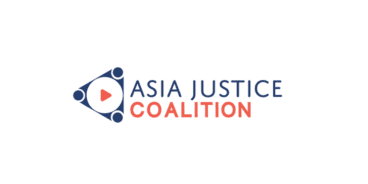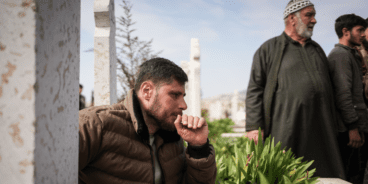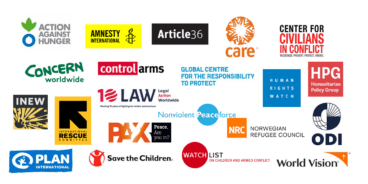
Joint NGO letter calling for action on the Philippines at HRC 36
To: Member and observer states of the UN Human Rights Council
Re: Joint civil society letter calling for action on the Philippines at HRC 36
Dear Excellencies:
We write to you to reiterate our grave concern over the human rights situation in the Philippines, and to call on your delegation to reflect this concern in both joint and individual statements at the 36th session of the UN Human Rights Council.
During the 35th session of the UN Human Rights Council in June, over 30 states, supported a joint statement calling on the Philippines to cooperate with UN human rights mechanisms and allow the Special Rapporteur on extrajudicial, summary or arbitrary executions to visit the country without conditions, and to accept and implement the recommendations that it received during its Universal Periodic Review last May.
Unfortunately, since then, the situation in the country has continued to deteriorate:
- Extrajudicial killings continue unabated in the government’s purported ‘war on drugs’. Over 7,000 deaths have been reported since the current administration took office in June 2016. In just two days, on 16 and 17 August 2017, a total of 60 people were killed in police operations in Manila and Bulacan Province. President Duterte openly praised the police for the high number of killings and urged them to continue operations. The police chief has stated that the spike in the number of deaths is “normal” and claimed that those who were killed had fought back against the police. However, such claims are often contradicted by evidence. For example, CCTV footage of the killing of a 17-year-old boy, Kian Loyd delos Santos, on 16 August shows the boy being dragged by plainclothes police officers. Furthermore, eyewitnesses claim that policemen passed a gun to the boy and told him to run before shooting him, execution style, in the back of the head.
- Threats against human rights defenders have increased. In a speech on 16 August 2017, President Duterte stated that he would like to investigate human rights workers in the country for “conspiracy”. He also stated that those working on human rights should be shot by the police for “obstructing justice”. President Duterte continued to attack the Commission on Human Rights of the Philippines and the UN Special Rapporteur on extrajudicial, summary or arbitrary executions. In May, he threatened to behead human rights advocates.
- Freedom of opinion and expression is at risk. During his annual State of the Nation Address on 24 July 2017, President Duterte drew attention to two media outlets, which have reported on official complicity in ‘drug war’ deaths, and whose reporters were present in the room. He claimed that Rappler, a prominent online newspaper, was foreign owned. He also accused ABSCBN, a television channel, of misinformation. He has threatened not to renew ABS-CBN’s franchise when it expires in 2020.8 President Duterte has conducted a campaign of intimidation against the Inquirer newspaper, criticising the Inquirer since it published a controversial front page photo of a ‘war on drugs’ victim in July 2016. Additionally, two journalists were killed by unknown assailants in separate incidents in Mindanao on 8 August.
Concerted action by the UN Human Rights Council is crucial. Notwithstanding numerous expressions of concern by States from all regions during its UPR, the pattern of threats and extrajudicial killings in the Philippines has continued unabated. We therefore urge you to collectively follow up on the joint statement from the June session, as well as on recommendations made during the Philippines UPR in relation to extrajudicial killings and on human rights defenders. In particular, we urge you to use the item 4 general debate and item 6 UPR report adoption of the Philippines to call on the government to:
- Accept an independent international investigation into all allegations of extrajudicial killings and hold perpetrators to account;
- Cooperate with the UN Special Rapporteur on extrajudicial, summary or arbitrary executions and grant unfettered and unconditional access to the Rapporteur and fully as per the Terms of Reference of Special Procedures;
- End incitement to killings in its ‘war on drugs’ and denounce all killings;
- End threats against human rights defenders;
- End intimidation and harassment of media and killings of journalists, and ensure the right to freedom of opinion and expression; and
- Uphold its responsibility to protect the rights of its population, including the rights to fair trial and due process.
Furthermore, it is likely that the government may reject key UPR recommendations on extrajudicial killings and on human rights defenders during its UPR outcomes at this session. In this case, and in line with membership expectations outlined in General Assembly resolution 60/251 and objective criteria for Council action,10 we would urge you to support a resolution on the Philippines.
Please accept, Excellencies, the assurances of our highest consideration,
- Aktionsbündnis Menschenrechte – Philippinen (AMP)
- Asian Forum for Human Rights and Development (FORUM-ASIA)
- CIVICUS
- FIDH – International Federation for Human Rights
- Franciscans International
- Global Centre for the Responsibility to Protect
- Human Rights Watch
- International Service for Human Rights (ISHR)
- Swiss Catholic Lenten Fund (FASTENOPFER)
Related Publications


Atrocity Alert No. 430: Syria, Central African Republic and the Philippines
